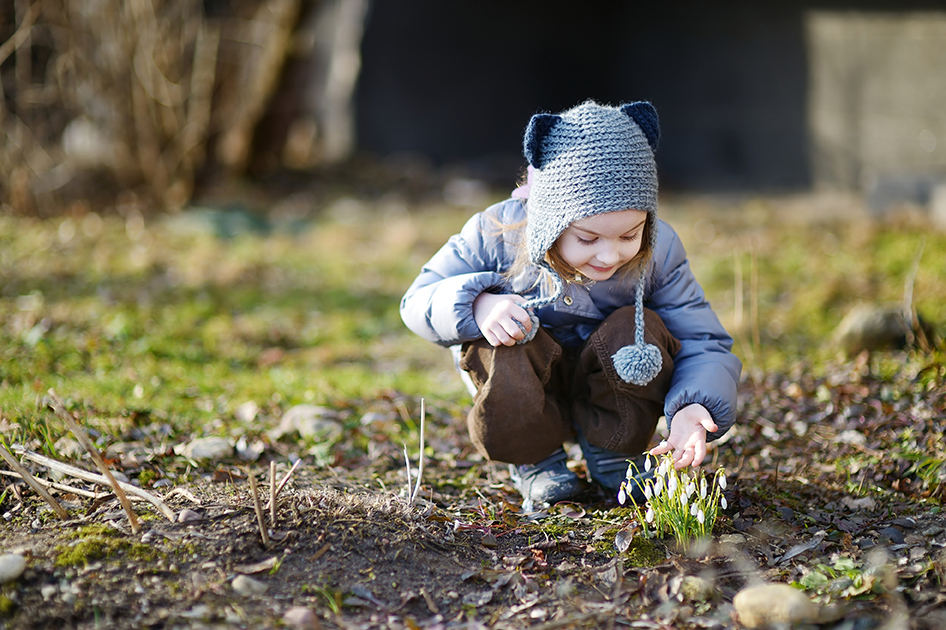With gadgets taking over a chunk of childhood, time spent outdoors in the lap of nature has been reduced to a minimum. unmana dutta reasons why it is important to help your child stay connected with nature.
When children are asked to draw “nature” as a subject in nursery school, we can see most young children draw rivers, mountains, flowers and trees and also colour them green, blue and different colors using their imagination. If their imagination is so beautiful, think when we take them out to the actual natural environment, how much more beautiful their imagination would get! Presently, the weather has improved—what with the soaring temperatures going down and bits of rain and wind can be felt—it is indeed the right time to set your child free and let him/her explore nature.
As a psychological consultant, most parents come to me with the usual complaints that their children are too busy immersed in their phones, TV, video games, etc, and do not go outside to play, do not study, cannot concentrate, etc. All these complaints require a little effort and changes in the lifestyles of the parents and guardians themselves, to see significant changes in the child. To deal with all these issues, nature is the best answer. Many research studies have been done in this area over the years and it has been proved that interaction with natural environment boosts physical, intellectual, emotional and social functioning of children. Studies show that active involvement with the natural environment improves concentration and helps to deal better with stressors.
Spending time in natural environment often boosts metabolism, creativity, problem-solving skills of children. It also helps improve empathy and care for the natural habitat, making them feel responsible for each and every life on the earth.
Packed in the urban setting for a long time now, almost two-three decades now, it is really important to give children the same fun their parents had at some point in life, like getting wet in the rain, catching butterflies, counting birds in the tree, planting and eating raw fruits from the trees, etc. This fun can still be enjoyed by your children, with a little change in your own outlook towards these activities, by giving them enough time to explore the environment by using yourself as a secure base.
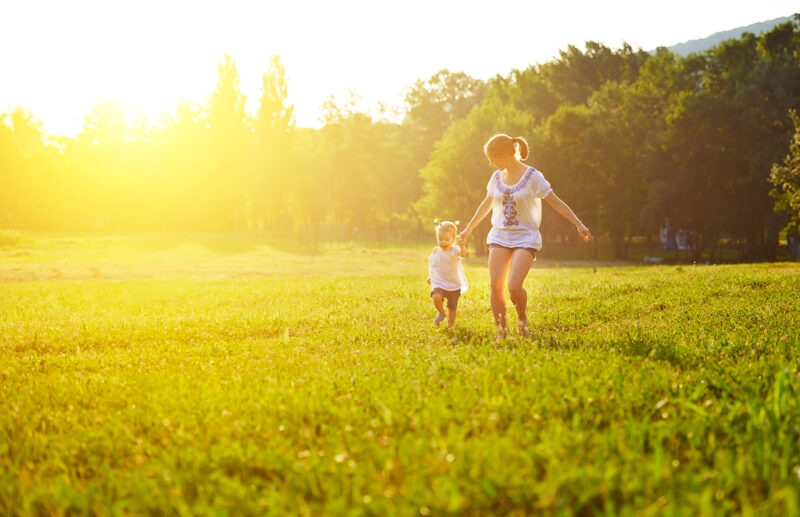
Plant fruit-bearing trees
Small plants of lemons, chillies, tomatoes, some berries, etc. are always easy to grow in your kitchen garden. Involve your children in the nurturance of these plants. Set time for watering. Give duties to each child. Talk to them about the growth and development process of these plants. The children will start becoming a parent to these plants and will actually experience the love towards these plants, in reality, beyond the closed world of their science books where they are taught how a plant grows, but never get to see its growth so closely. And, when these plants bear fruits, let your child pluck them. By this, their happiness would know no bounds.
Plan trips to a park
Take your child to a park where he can just be his own self, touching, smelling and seeing all things on his own. Let him/her explore. Help him know the things around the park, by making him see small plants, flowers, etc. This can be done on a daily basis, in order to make the child feel more connected to the greenery around.
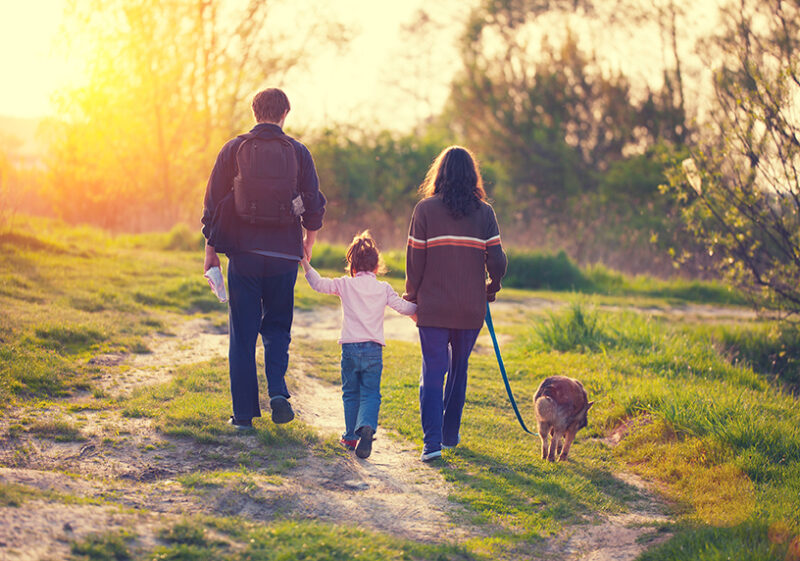
Plan a Weekend
Spend a day out in a natural environment, the entire family together. This can be completed by cooking food outside, sitting and playing with them. Let them look for wood for cooking and also involve them in cooking. Sit and have the prepared food together, and tell them your stories. Let them play and explore around with you. Let them touch and feel the nature, as a first-hand experience.
Allocate days
Allocate days for different activities in the natural environment. Take them to a park, and set aside different days experiencing different things. One day could be bird watching day, the other one could be counting nests in the park day, yet another could be studying insects in the park day, etc. This can make children quite thrilled and also make them look forward to more such days.
Paint together
A few days in the park could be allotted to painting. Tell your child to focus on some particular aspect of the park and draw it. You choose another aspect. Colour them and fill it with different colours out of your own imagination. Do not criticise or over direct your child. Let it be natural and self-made.
Plant big trees
Planting big trees in parks or gardens can help children develop love and nurturance towards the tree. It also helps the child to develop patience and appreciate the long-term benefits of love and perseverance.
Collect things to create
Teach them innovation by collecting different things such as twigs, sticks, dried leaves, roots and bring them home to create something innovative out of it. This would not only help make them more creative but would also make them appreciate the usefulness of recycling things from nature.
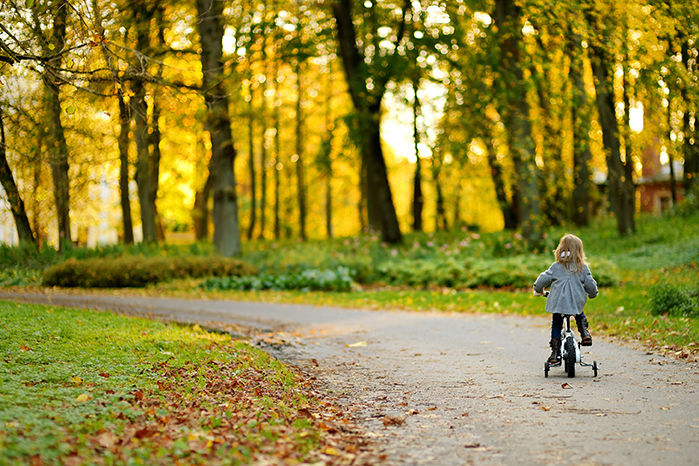
Take indoor activities outdoors
Activities such as reading a book, listening to music, playing a card game, etc could be done sitting somewhere outside in a natural environment. This would not only make them feel better, but also change the overall experience of the task.
Allow some silent time
Always leave room for silent time, where you and your child can hear sounds of birds chirping, wind blowing or seeing the clouds and leaves move or the birds fly. Give them some time to hear and see these, and they would hear them with more cautiousness than ever before.
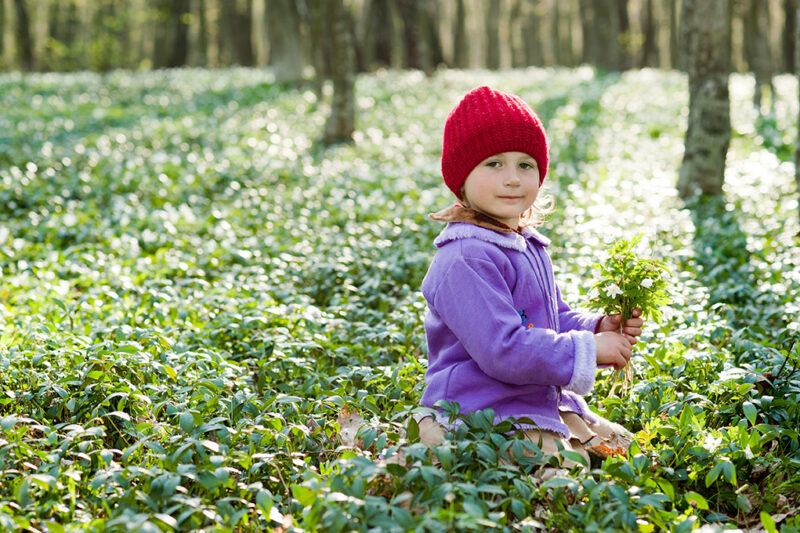
Let them get dirty
Spending time in nature involves touching and feeling those things which may involve risks and can even sometimes be unhygienic as well. However, let your child be as he/she is. Let him/her play in mud, run in the rain, jump in the water, climb trees and let them do all other activities that involve sensory input. In fact, research says that one kind of bacteria found in the soil, Mycobacterium Vaccae has been found to increase the release of serotonin and thus alleviates mood and decreases anxiety. This bacterium also improves emotional health, vitality and cognitive functioning.
To help this experience of nature have a good impact on your children, it is really important for the whole family to be involved in the activities as a group. Along with the children you should run, roll, climb and explore together. Enjoy and experience joy with your children and family together and see your child grow into an environment-friendly and caring individual.


